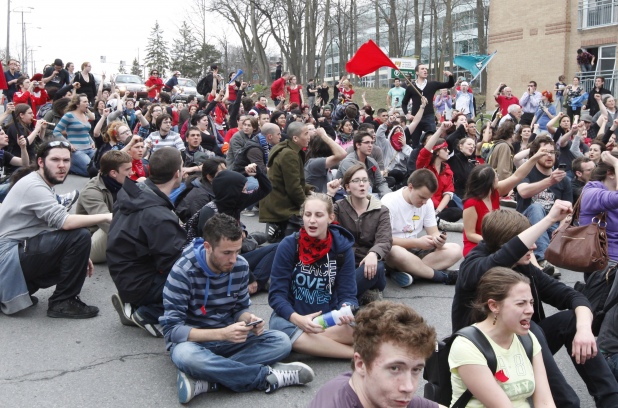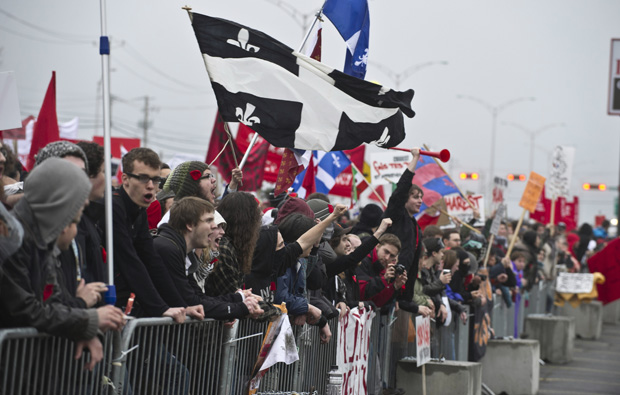Tom Mulcair has had a busy week. In his first real outing on the national stage on any policy issue of pan-Canadian importance he chose to entangle energy, regions, the manufacturing sector, and the environment. Melange became malaise as Mulcair designed his prognostication to polarize.
In short, according to Mulcair, manufacturing jobs in central Canada suffer from a high dollar caused by energy exports. Exploiting the oilsands in Alberta and building pipelines to ship processed bitumen south and west is boosting the strength of the dollar. Mulcair calls it ‘Dutch Disease’.
Though without a reasonable diagnosis or plan for treatment, his strategy is quite transparent. The NDP has a tenuous hold on the seats from what many have called an accidental victory for the party in Quebec. Showing up as Quebec’s defender is a role conceded within the last decade by the federal Liberal Party, and Mulcair is digging in, and pouring the concrete to reinforce the foundation.
The NDP leader’s wedging from Outremont was a welcome opportunity for western premiers, whom Mulcair dismissed as “messengers” for Prime Minister Stephen Harper. Saskatchewan Premier Brad Wall warmed up his twitter and Facebook accounts to throw haymakers in defence the prairie province’s resource extraction industry.
For Wall, whose party captured 64.2% of the popular vote in the last provincial election, standing up for his province was more of a pleasure than a necessity, as his main opponents in the Saskatchewan NDP are lagging far behind.
Moving west, Alberta’s newly elected majority Premier Alison Redford — comfortably settling without much concern for imminent electoral survivability — passively mustered that Mulcair’s comments were “divisive and ill-informed”.
Yet, westward still, where we see a Premier in the fight for her political life in BC, with a surging NDP topping 50% in provincial polls, with an economy fixed firmly in the resource sector pipelines ready, it’s mostly quiet. Christy Clark’s finance minister did dismiss the “ignorant” remarks of Tom Mulcair, and the premier did call Mulcair’s position “goofy”, however, she has been absent from the province on a trade mission overseas and comparatively absent on the issue.
Resource sector jobs are inextricably linked to the BC economy. There have been talks or rebranding Clark’s party to recapture the pro-business and pro-development segments of the successful coalition that has kept her party in power. A perfect opportunity was presented to allow Clark to emerge as the most vocal defender of Western interests. Clark wasn’t just weak on brand, she was largely off-grid.
The federal NDP leader is making shrewd if cynical strategy dividing regions against each other but in the end it will likely pay political dividends for him. The other winners in this dance have been the Premiers with the least to gain while Premier Clark — facing a desperately dire political situation at home — has missed her chance to enrich her electability from this latest entanglement.



